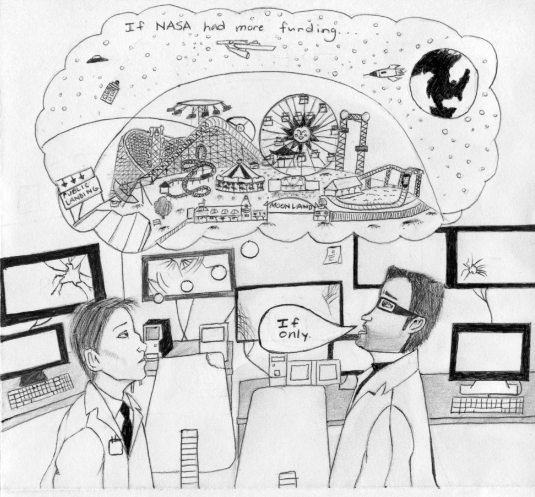
The Chinese lunar probe Chang’e-3 touched down safely on the moon on Dec. 14, marking the first landing on Earth’s closest neighbor in 40 years.
But this landing is also evidence of something greater. It shows that, for the first time since Yuri Gagarin entered orbit in 1961, America is falling behind on the final frontier. Countries such as China, India and Japan are all making unprecedented advances in the field of space exploration, and America is sitting on its hands in the corner.
NASA received $17.7 billion, according to the federal government’s 2013 budget. That was under one half of one percent of the national budget for that year, and it pales in comparison to the national defense budget, which tips the scale at a walloping $683 billion.
While the effort to commercialize space exploration is promising, it is simply too expensive and too slow. The only way to efficiently and effectively make any real progress is for these programs to be funded by some entity that has effectively infinite funds and resources. Something like, for example, the government of a global superpower.
The facts are overwhelmingly evident. Humanity is using up the Earth. Fossil fuels, pollution, and overpopulation are all contributing to this problem. Clean energy and emissions standards are helping to curb the tide, but that is only delaying the inevitable.
The bottom line is that if we stay on our current course, the Earth will be spent in the next few thousand years.
When that point arrives, humanity faces a choice. Die off, go quietly into the night, a mere speck on the cosmic timeline, or take to the stars, becoming the great civilization we have the potential to be and, in the process, enacting the ultimate realization of manifest destiny.
As a global community, we are on the verge of so many great innovations. Quantum computing, fusion power, true artificial intelligence are things that will most likely come about in all of our lifetimes.
But for some reason the American government, the most powerful economic, military, and scientific force in the world, seems to think exploring the greatest unknown ever to face humanity should take backseat to fighting wars and arguing about health care.



